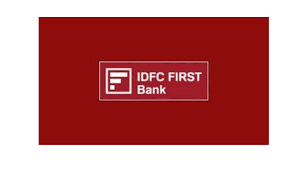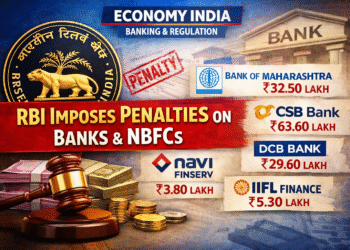“ICICI Bank faces ₹49.11 crore tax demand notice from GST authorities; includes tax, interest, and penalty under West Bengal GST Act.”
New Delhi (PTI / Economy India): ICICI Bank, one of India’s largest private sector lenders, disclosed on Wednesday that it has received a Goods and Services Tax (GST) demand notice amounting to ₹49.11 crore from tax authorities in West Bengal. The development underscores the increasing scrutiny of India’s financial sector by revenue officials amid the government’s push to tighten compliance and improve tax collections.
Details of the Notice
In its stock exchange filing, ICICI Bank stated that it received an appeal order dated September 15, 2025 from the Additional Commissioner of Revenue (Appeals), West Bengal. The notice has been issued under Section 107 of the West Bengal Goods and Services Tax Act, 2017, following a dispute related to GST compliance.
The demand raised against the bank is structured as follows:
- Tax: ₹23.52 crore
- Interest: ₹23.23 crore
- Penalty: ₹2.35 crore
This takes the total to ₹49.11 crore.
ICICI Bank confirmed that it is reviewing the order and will take appropriate legal steps in line with advice from its counsels.
Context: Growing GST Disputes
The GST regime, introduced in July 2017, was aimed at creating a unified tax structure, reducing cascading effects of multiple indirect taxes, and improving compliance. However, since its rollout, several corporates across sectors—including telecom, manufacturing, FMCG, and now banking—have faced tax disputes.
According to analysts, banking and financial institutions often come under scrutiny for input tax credit (ITC) claims, classification of services, and inter-state transactions.
A senior tax consultant told Economy India:
“Cases like ICICI Bank highlight how complex compliance can become under GST, particularly in service-heavy industries like financial services. Authorities are adopting a stricter interpretation of law, while companies are contesting many of these claims in appellate forums.”
Implications for the Banking Sector
ICICI Bank is not the first major lender to face such disputes. Over the past two years, several banks and NBFCs have reported GST-related notices on account of alleged misclassification of services or denial of input tax credits.
While the amount of ₹49.11 crore may not significantly impact ICICI Bank’s financials given its scale, the development points towards three larger concerns:
- Increased Compliance Pressure: Financial institutions must devote more resources to ensure meticulous GST filings.
- Investor Sentiment: Repeated disputes with tax authorities can raise questions about governance and risk management.
- Sector-Wide Trend: Banking and insurance sectors are likely to witness further scrutiny as the government ramps up efforts to plug revenue leakages.
For shareholders, such notices are often seen as “contingent liabilities.” They may not immediately affect earnings unless upheld in appellate forums, but they remain on the risk radar.
West Bengal Tax Environment
West Bengal has been one of the states actively auditing large taxpayers under GST. Experts believe that state authorities are under pressure to meet revenue targets and are increasingly focused on sectors like banking and telecom that have significant service tax components.
The West Bengal Goods and Services Tax Act, 2017 empowers state tax authorities to issue such demand notices, subject to appeal at higher judicial forums.

ICICI Bank’s Position
ICICI Bank, in its disclosure, refrained from making detailed comments but reiterated that it will contest the demand. Industry observers note that banks often appeal such orders to higher appellate tribunals or courts, where cases can take years to resolve.
“Given ICICI Bank’s balance sheet strength, this particular demand is not material in financial terms. However, what matters is how such disputes are resolved, since they set a precedent for similar cases across the industry,” said a Mumbai-based equity analyst.
GST Reforms & Road Ahead
The notice comes at a time when the GST Council has been actively simplifying the tax structure. Recently, the Council abolished certain higher rate slabs and introduced measures to curb fake ITC claims.
For banks, experts believe the government may need to issue clearer guidelines to reduce interpretational disputes. “If compliance becomes too complex, it affects ease of doing business. India has made significant progress on GST reforms, but clarity for financial services is still evolving,” noted a senior partner at a Big Four consulting firm.
The ₹49.11 crore GST demand notice against ICICI Bank adds to the growing list of high-profile disputes under India’s indirect tax regime. While the financial impact on the bank remains limited, the development signals heightened compliance challenges for the banking industry at large.
As India’s GST regime continues to evolve, such cases will likely shape future jurisprudence, balancing the government’s revenue concerns with the industry’s demand for clarity and ease of compliance.
For now, ICICI Bank’s response and legal strategy will be closely watched by investors, regulators, and industry peers.
(Economy India)












